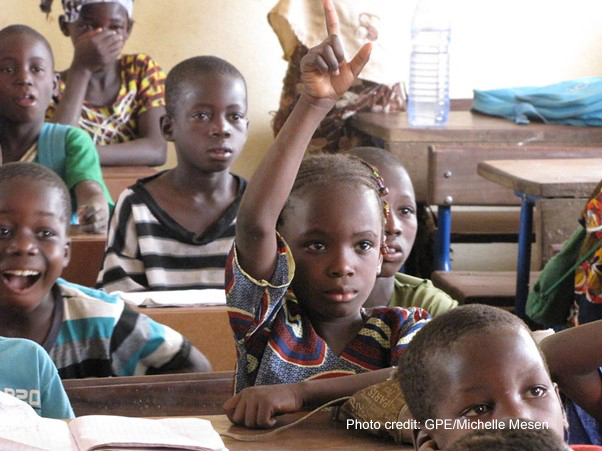This blog was written by Thelma Obiakor and Adedeji Adeniran, Centre for the Study of the Economies of Africa (CSEA).
The educational landscape across sub-Saharan Africa is marred by daunting challenges, with persistently poor learning outcomes standing out as a cause for urgent concern. Despite decades of concerted interventions, evidence indicates a distressing regression in learning performance over the past half-century. Amidst these pervasive challenges, it is imperative to recognise and explore the modest, yet discernible progress achieved, that lay the groundwork for more transformative developments in education. Some examples of progress made include:
- Understanding the scale of the crisis: At the commencement of the SDG era in 2015, there was no consensus on the concept of quality and inclusive education in Africa. However, global efforts have led to significant progress in measuring learning outcomes, revealing the magnitude of the learning crisis. According to the World Bank, a staggering 89% of 10-year-olds in Africa lack foundational learning skills, with out-of-school children contributing significantly to this crisis.
- Emergence of policy toolkits: The urgency to address the learning crisis has spurred a paradigm shift towards understanding policy toolkits. Development economics now embraces experimentation and testing, leading to progress in identifying solutions. Smart investments that support learning have been identified, marking a departure from previous decades where priority centred around finance. Key partnerships have also emerged to support policy mainstreaming and localisation, making education a focal area of investment for donors.
Problem identification through data collection and research, as well as massive partnerships and collaborations in experimenting with solutions, amongst other factors, have laid the groundwork for progress. Building upon these foundations, the integration of successful strategies into the implementation science framework offers a structured approach to systematically translate research findings and collaborative efforts into actionable policies and programmes within the education sector in the region.
Benefits of implementation science
Implementation science, in essence, is the systematic study of methods to promote the adoption and integration of evidence-based practices into routine practice to improve outcomes. It provides a structured framework for translating research findings and collaborative efforts into actionable policies and programmes. This approach involves understanding what interventions work and how to implement them in real-world contexts.
Challenges for implementation
While the integration of progress and implementation science holds promise for transforming the education sector in sub-Saharan Africa, it is crucial to acknowledge and address the challenges that may arise during implementation. One significant challenge is the limited resources available for implementing evidence-based interventions. Many countries in sub-Saharan Africa face budget constraints and competing priorities, which may hinder the allocation of sufficient resources to support the implementation of educational programs effectively. Another challenge is the capacity constraints within educational systems. This includes the availability of skilled personnel to design, implement, and monitor interventions, as well as the infrastructure needed to support these efforts. In many cases, there may be a shortage of qualified teachers, administrators, and support staff, as well as inadequate facilities and technology infrastructure, which can impede the successful implementation of evidence-based practices.
Furthermore, cultural and contextual factors may present challenges to implementation. What works in one setting may not necessarily be effective in another due to differences in language, socio-economic status, cultural norms, and governance structures. It is essential to consider these factors when designing and implementing interventions to ensure their relevance and effectiveness. Stakeholder engagement and buy-in are also critical for successful implementation. Education systems involve multiple stakeholders, including government agencies, non-governmental organisations, communities, parents, teachers, and students. Building consensus, fostering collaboration, and securing commitment from all stakeholders can be challenging but is essential for the sustainable implementation of evidence-based practices.
Finally, monitoring and evaluation are essential components of implementation science but can pose challenges in resource-constrained settings. Establishing robust monitoring and evaluation systems to track progress, measure outcomes, and identify areas for improvement requires investment in data collection, analysis, and reporting capacity. Addressing these challenges will require a coordinated and multi-faceted approach, involving government leadership, international partners, civil society organisations, and local communities. By recognising these challenges and proactively addressing them, stakeholders can maximise the potential of implementation science to drive meaningful and sustainable improvements in the education sector in sub-Saharan Africa.
Building transformative change
Ultimately the integration of progress and implementation science offers a beacon of hope for the education sector in sub-Saharan Africa. Despite the persistent challenges, concerted efforts and a commitment to evidence-informed practices can drive meaningful and sustainable improvements in learning outcomes and overall educational quality. By prioritising evidence-based interventions and fostering collaboration, stakeholders can harness the transformative power of implementation science to create inclusive, high-quality learning environments, empowering the next generation of leaders and change-makers in sub-Saharan Africa.
One of the most significant potential outcomes is the improvement in literacy and numeracy rates among students. Evidence-based interventions, when effectively implemented, can enhance teaching methods, curriculum design, and student engagement, ultimately leading to improved proficiency in reading, writing, and mathematics. This, in turn, can empower students with essential skills for lifelong learning and future success. Enhancing teacher effectiveness is another critical outcome that can result from the strategic application of implementation science. By providing educators with training, support, and resources tailored to their needs and contexts, implementation science can help improve instructional practices, classroom management techniques, and overall teacher satisfaction. This, in turn, can foster a more conducive learning environment and positively impact student outcomes.
In conclusion, the key partnerships in scaling up of successful educational initiatives facilitated by implementation science can ensure widespread impact and sustainability. By identifying effective interventions and strategies, stakeholders can replicate and expand these initiatives to reach more students, schools, and communities. This amplification of positive change can lead to lasting improvements in educational quality, equity, and access across sub-Saharan Africa.





